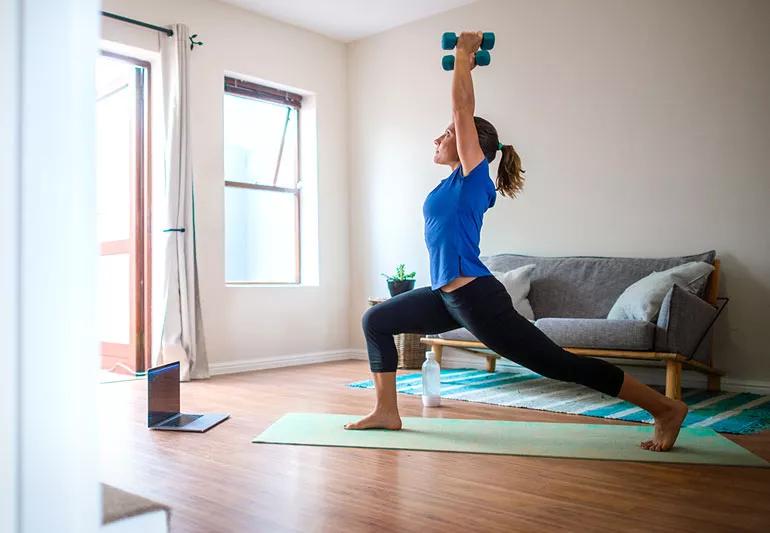Get the short answer from a pulmonologist

Image content: This image is available to view online.
View image online (https://assets.clevelandclinic.org/transform/4d606f65-caef-4464-b66f-e6d298e22d6c/wmnExerciseHome-1223998256_770x533_jpg)
woman exercising at home yoga
Q: Will working out before or after we get vaccinated for COVID-19 make the vaccine less effective?
Advertisement
Cleveland Clinic is a non-profit academic medical center. Advertising on our site helps support our mission. We do not endorse non-Cleveland Clinic products or services. Policy
A: The level of concern is low. People who are experiencing more side effects from the vaccines tend to be younger, so they’re people who are more likely to exercise regularly. Many were worried about how long the side effects would last. But in reality, we know that when it comes to this population, the side effects of the vaccines are typically very mild and last about a day or so.
In general, it’s hard to predict how someone will respond to the vaccines. What we’ve seen so far is that younger and healthier people have experienced vigorous immune responses to them. As for now, no evidence suggests that if you exercise before or after getting vaccinated for COVID-19 it will make the vaccine less effective.
Some evidence shows that people who maintain healthy lifestyles and exercise regularly seem to have enhanced responses to vaccines. Their bodies create more antibodies compared to people who are not as healthy or in good shape. So, there’s some proof that by having a healthy lifestyle and exercising regularly, you might boost your immune response to the vaccine.
As for exercising after getting the vaccine, I recommend listening to your body. You might find that after you get your shot, it could be a good day to just rest or do something less strenuous like just taking a walk. Recovery is part of exercising, too. It’s not a bad thing to have a lighter workout day.
Advertisement
You may be able to exercise as you normally do after your vaccination but if you don’t feel up to it, don’t push yourself.
— Pulmonologist Humberto Choi, MD
Advertisement

Sign up for our Health Essentials emails for expert guidance on nutrition, fitness, sleep, skin care and more.
Learn more about our editorial process.
Advertisement
The short answer: It’s complicated, but the basic care precautions still prevail, like washing your hands and isolating if you’re sick
They can feel like a typical headache or a migraine headache, but the pain can last for weeks to months
Any large social gathering — from a family birthday party to an indoor music concert — has the potential to spread serious infection
It’s important to connect with a healthcare provider, get quality sleep and balance your activities with your energy levels
Just like the flu, COVID-19 will continue to evolve every year
The duration varies, but symptoms can linger for a few days up to a couple weeks or more
Vaccination is best for prevention, but if you get sick with COVID-19, treatments are available
The virus lives best in humans, but it can last on hard surfaces, like doorknobs and railings
Type 2 diabetes isn’t inevitable with these dietary changes
Applying a hot or cold compress can help with pain
Pump up your iron intake with foods like tuna, tofu and turkey